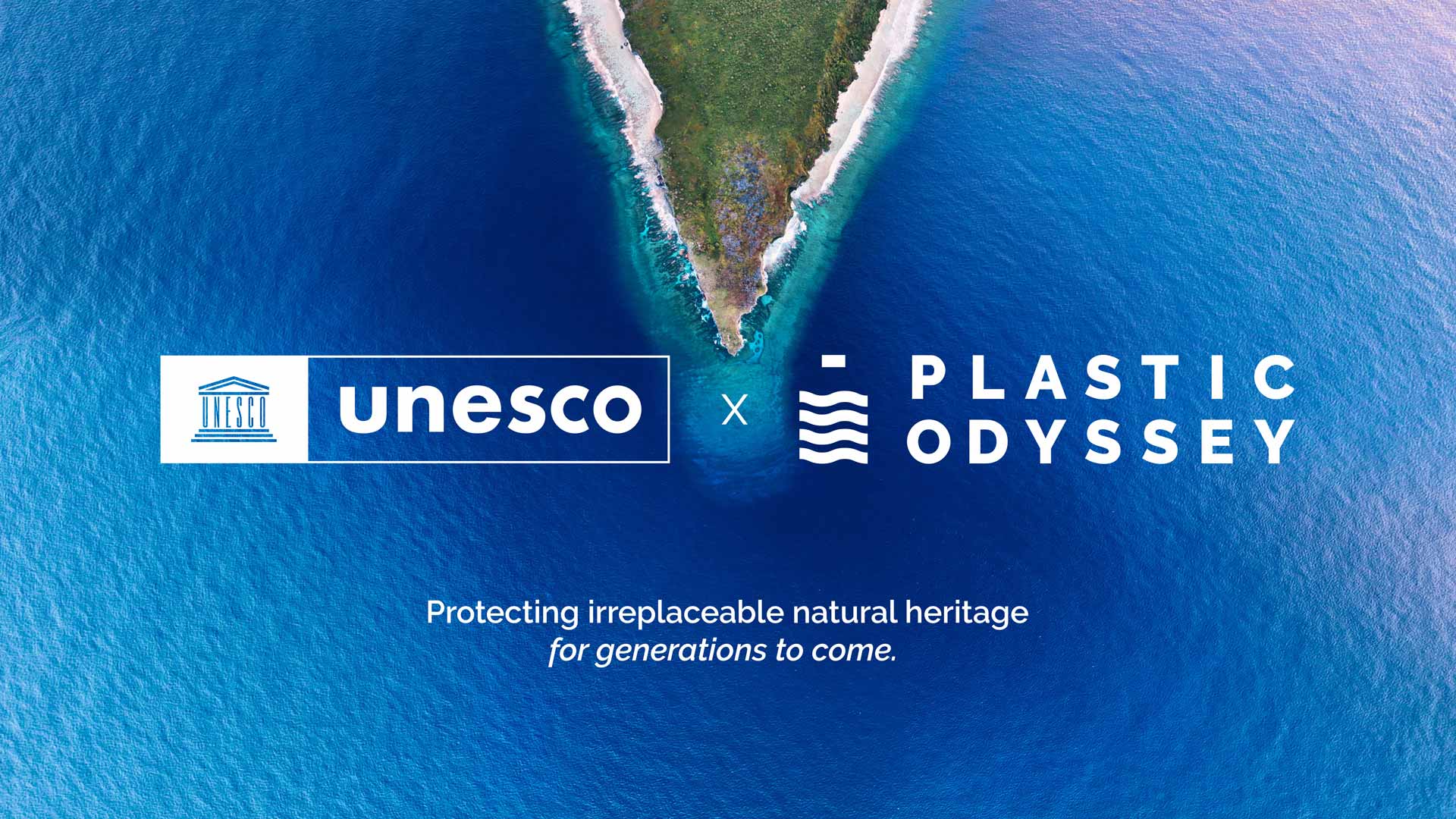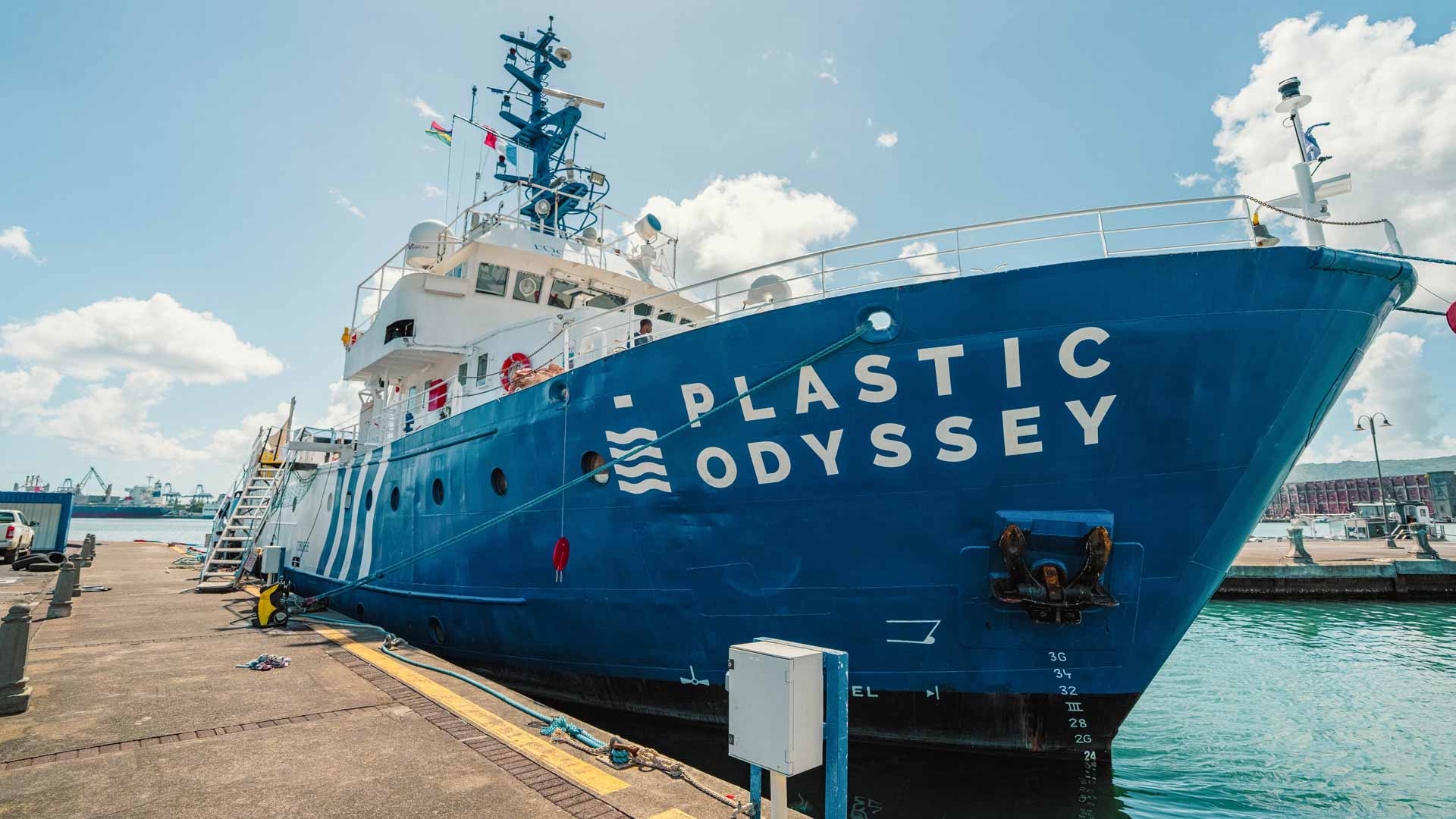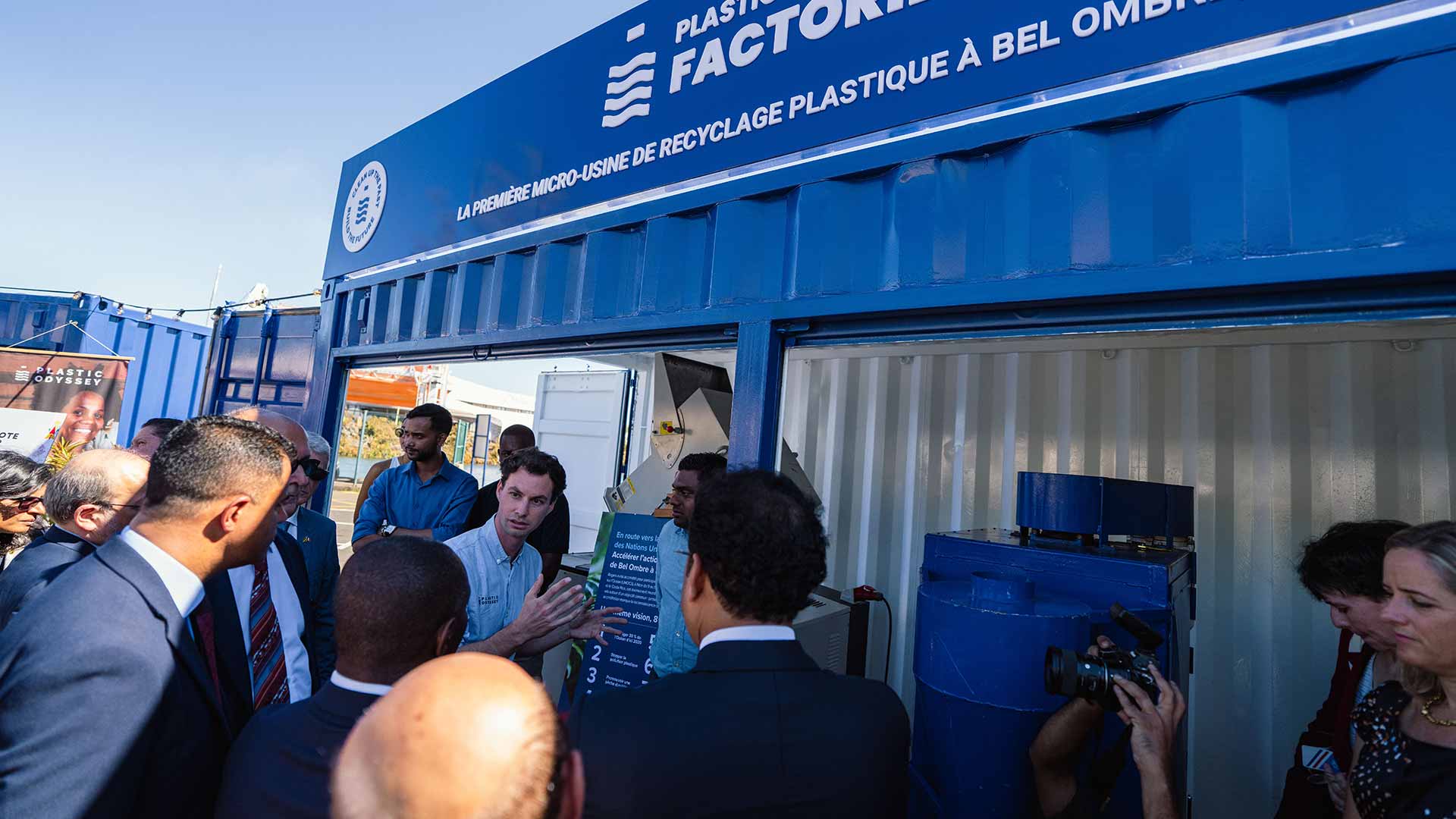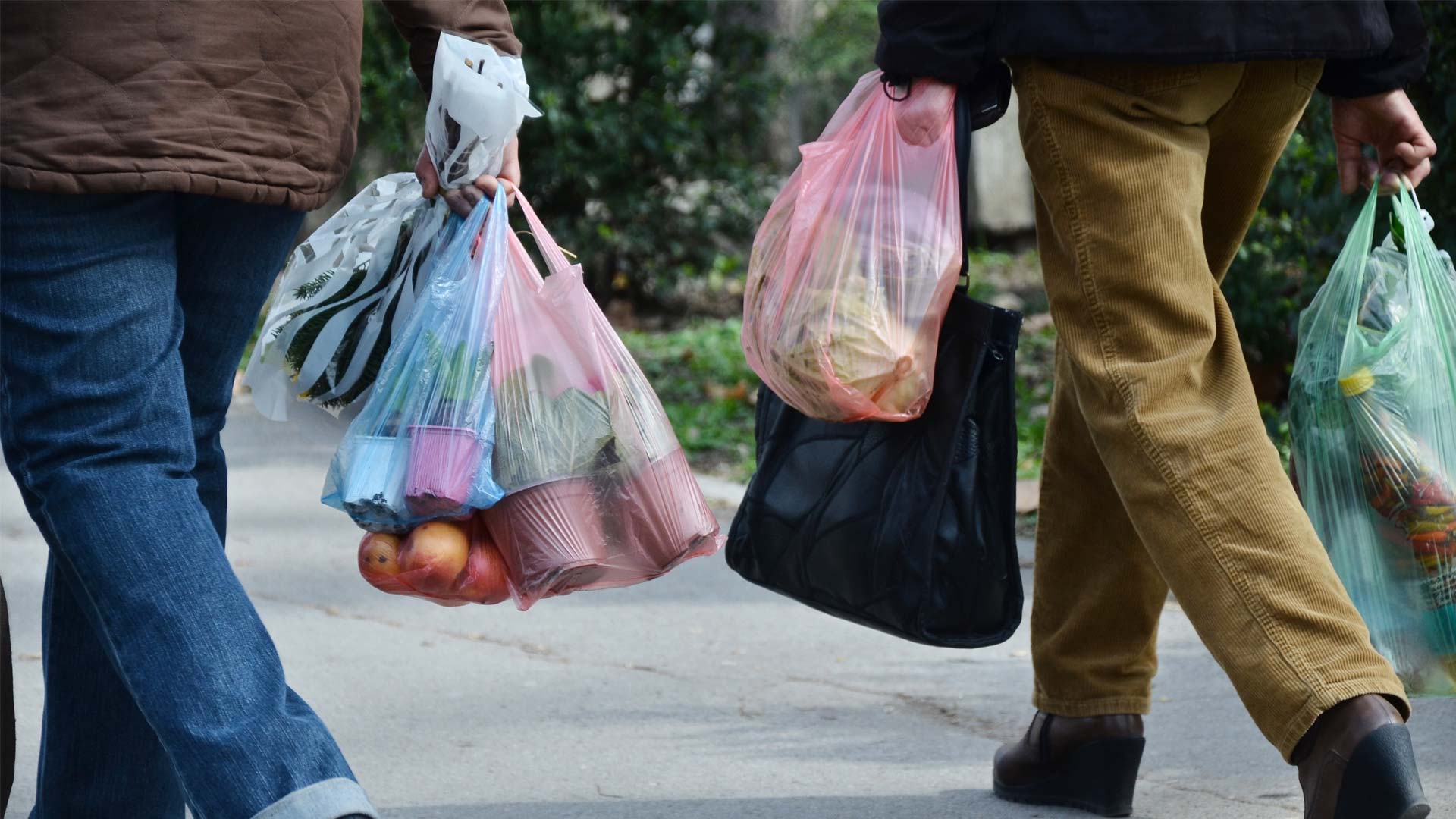
How can we break our dependence on plastic?
Plastic Odyssey travels the world in search of concrete solutions to break free from our dependence on plastic. At each stage of the expedition, the team collects data on a plastic object that is particularly present in the landscape, the reasons for its use, and on alternatives. The objective of this data collection? To build a large library of cases to answer an unsolved mystery: how to change behavior towards plastic?
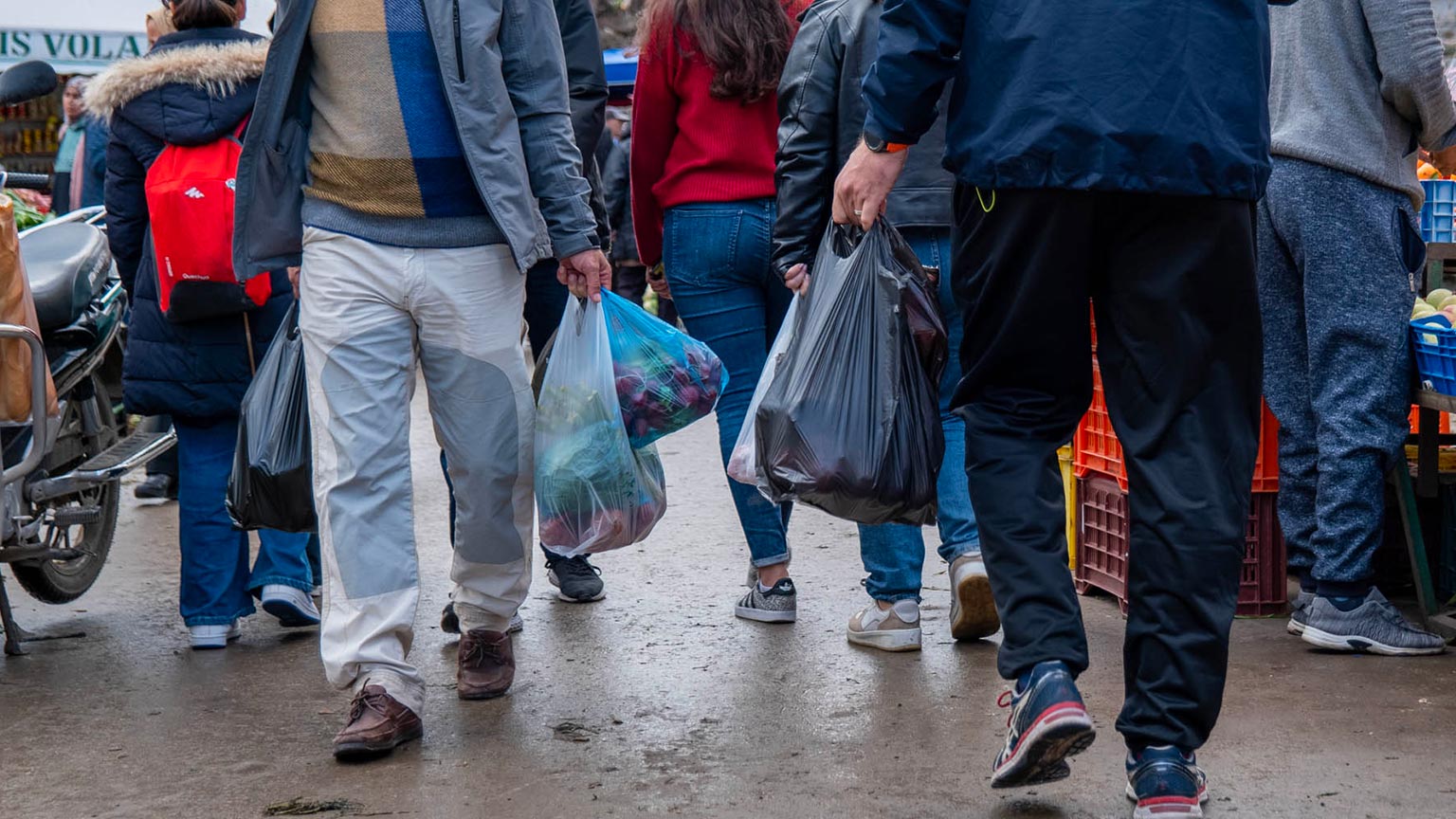
Here’s where our research led us in Tunisia.
Plastic bags are tough
Like no other plastic object, the plastic bag has been subject to prohibition everywhere in the world: 116 measures have been promulgated in total. In Tunisia, a government decree banning plastic bags was promulgated in 2016. It has not succeeded in making it disappear. Six years after the ban, the bags are still present everywhere in the country. In the hands of everyone we meet at the market, in overflowing trash cans, along roads, in nature… In Tunisia, if the law can do nothing against the plastic bag, what other levers exist to slow down the crazy race of bags towards nature and the ocean?
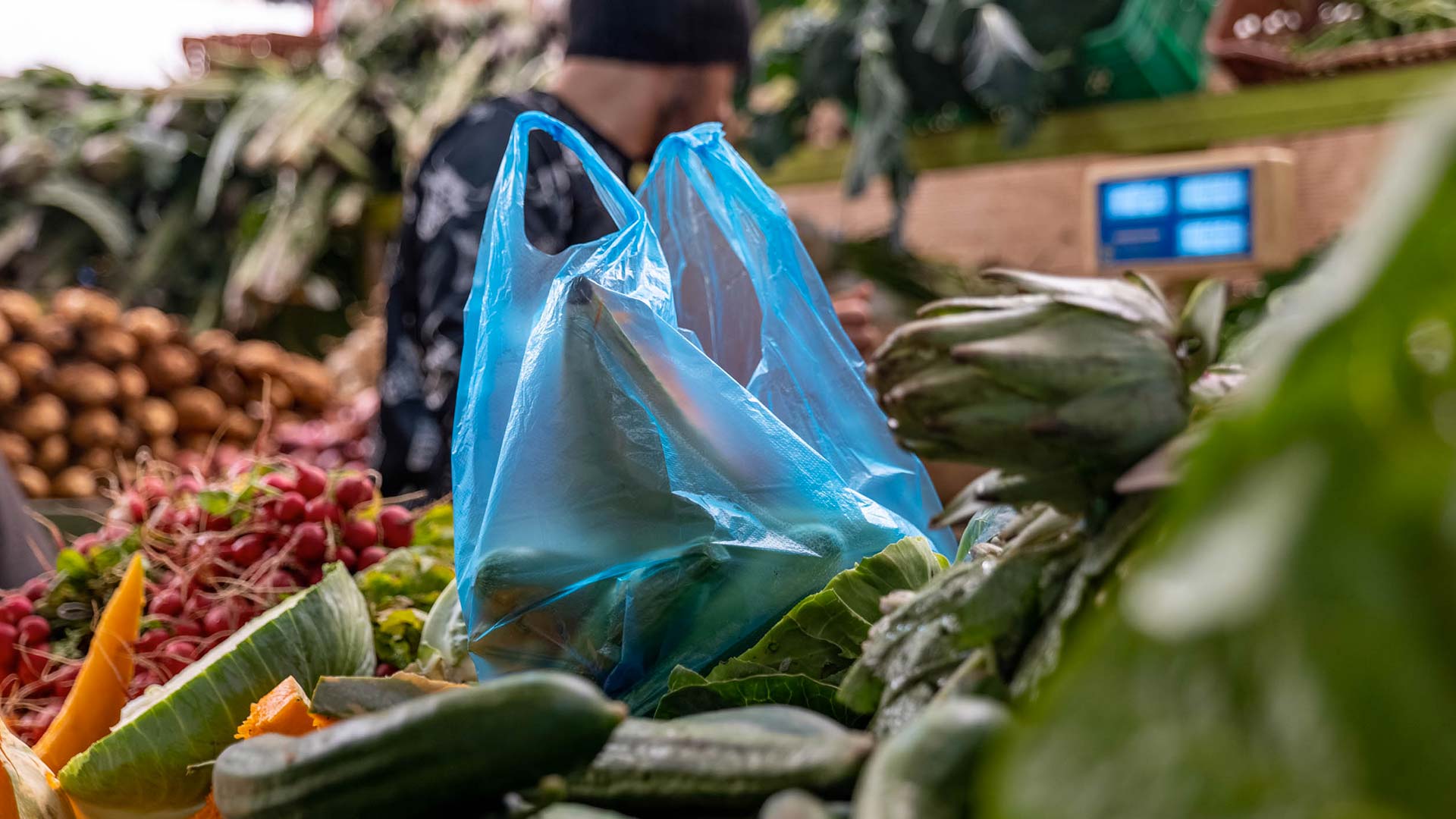
Who benefits from the bag?
At the souk in Bizerte, where we go every two days to stock up on supplies for the boat, the food is all without packaging. The fruits and vegetables are laid out on large fabrics. Rice, pasta, semolina, and other dry products are presented in large jute bags. “We live in a country where almost everything is sold loose. All the conditions are in place for us to do without plastic bags“, explains Aida Delpuech, a journalist specializing in environmental issues. It is at the time of purchase that the plastic bag invites itself to the dance. This experience is not specific to Tunisia: it is lived in almost all markets in the world.
We buy a kilo of tangerines (already packaged by Mother Nature, who gave them, let us remember, a skin that naturally protects them from any external contamination), which are put in a bag, which is doubled with another bag, and which is slipped into our shopping bag, with the biggest smile. “Traders think it’s a service they’re doing you. Here, if they don’t give you a bag, people think they’ve been poorly served”, Aida explained to us.
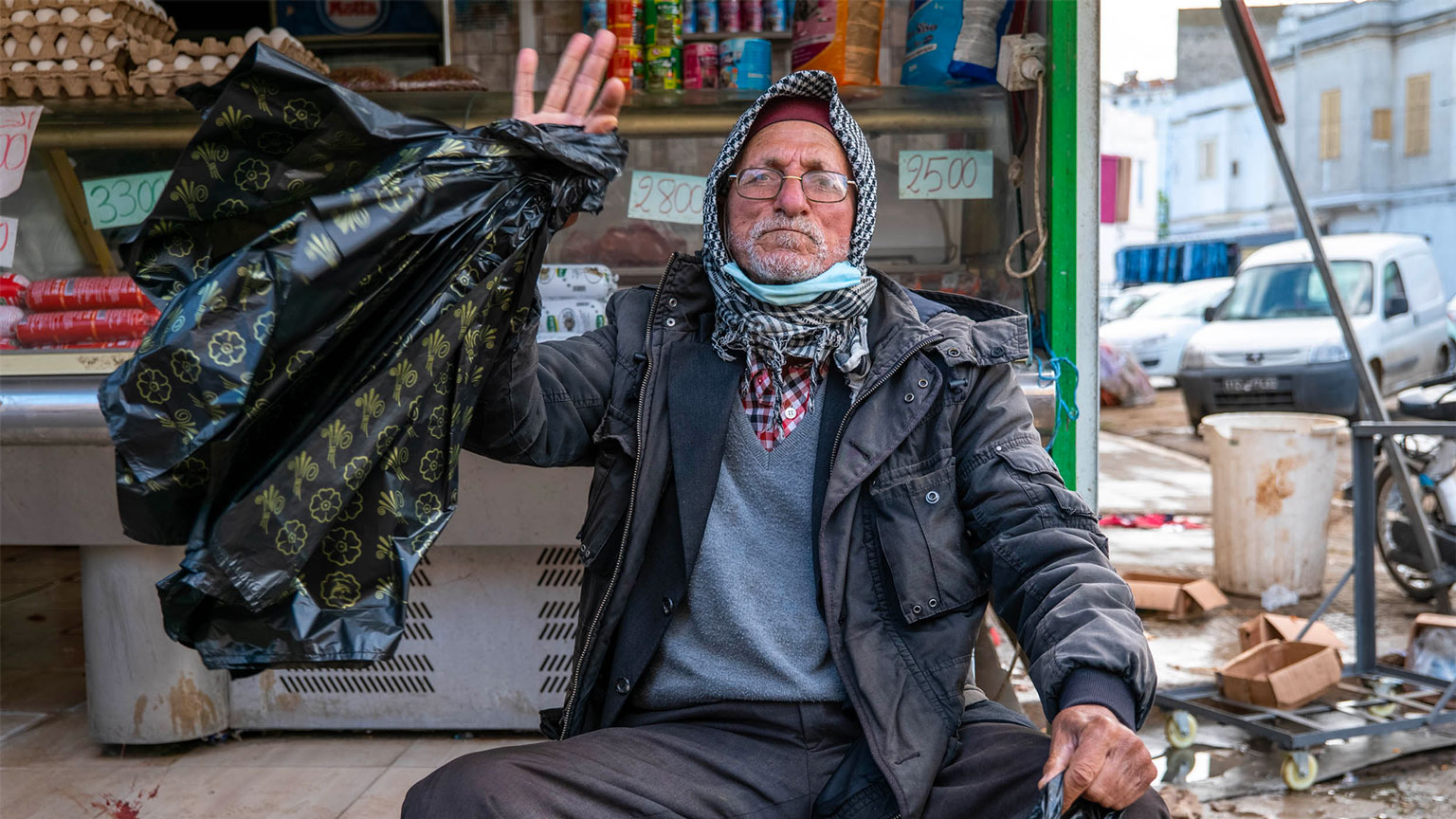
Some have even made this “service” a specialty. Between the stalls, plastic bag vendors wander. They hang them in clusters from each arm, and sell them individually to customers who ask for them. Seeing our surprised faces, a resident of Bizerte explains to us: “Black plastic bags are now banned, so traders mainly give out blue or white bags, but you can see through them. Here in Tunisia, we like to hide what we’ve bought, so we buy a black bag on the side to put our shopping in. Can you imagine, for example, someone who doesn’t have a lot of money seeing that we’ve bought lots of things? It would make them want it, poor thing! So we hide it. We’ve always done it that way.”
In the end, in Tunisia, does the plastic bag make people happy? Sadly, no. Tunisia only recycles 4% of the plastic waste that accumulates on its territory, and everywhere we go, the plastic bag evokes the same image: that of plastic “stuck to trees”. It is the same souk merchants who, just a few minutes earlier, were distributing plastic bags left and right, who paint a very sad picture for us: “Plastic bags in nature, here, it’s dramatic, and it’s not beautiful! Our beautiful landscapes are the only thing we have here in Tunisia. We must take care of them”, explained a souk vendor to us.
So, what is missing for this hated bag to disappear from the landscape?
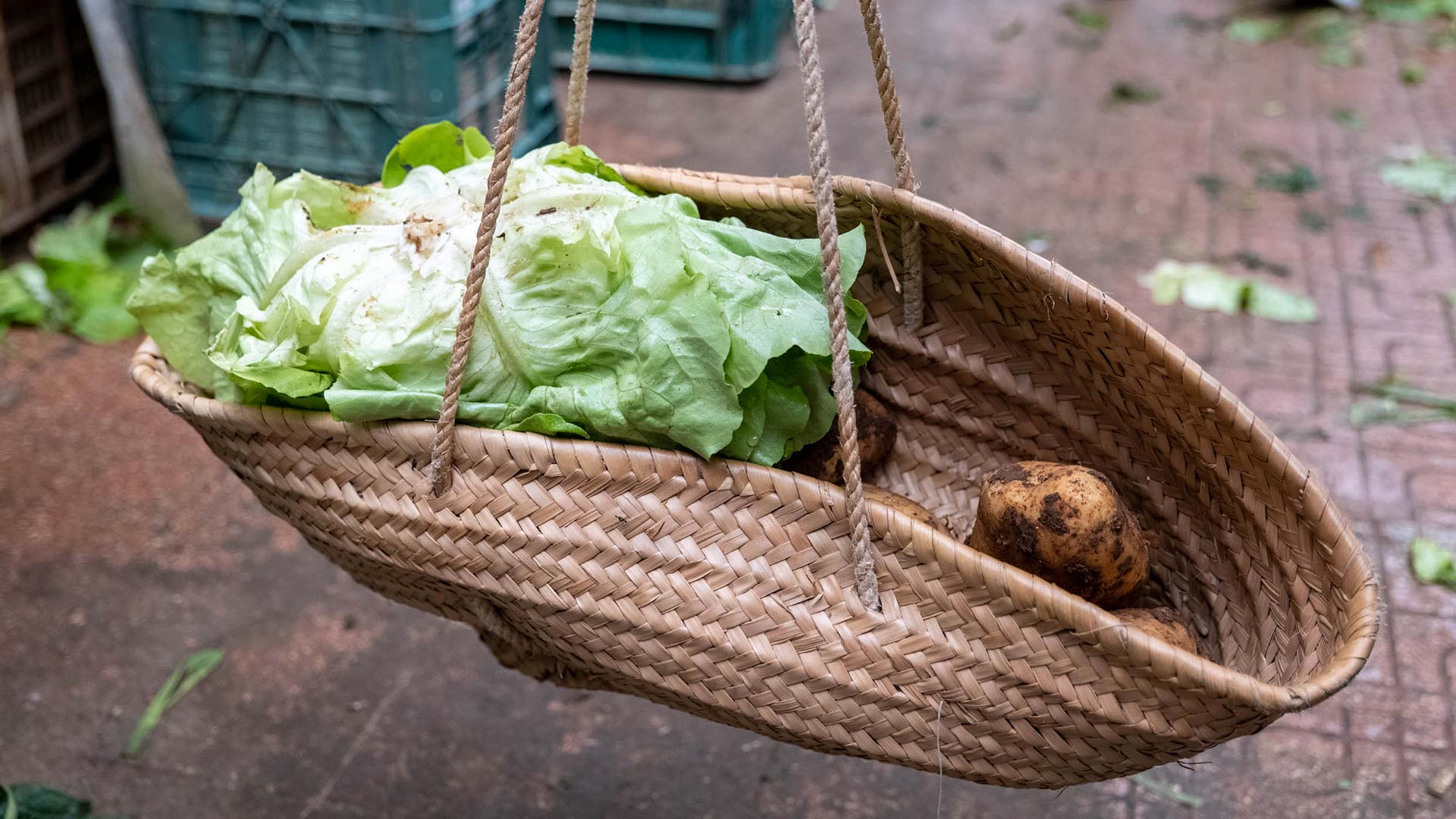
Alternatives in step with the times
When the decree banning plastic bags was promulgated in Tunisia, Aida Ben Hassen‘s association was commissioned by the government to conduct a survey of residents on the reception of this measure. Aida shared with us the survey’s findings: “Residents are ready to change, yes, but they are asking for alternatives.” “And the couffin?” someone naively replied. (The couffin is a woven basket made of palm leaves typical of Tunisian craftsmanship, which allows one to transport provisions, editor’s note.)”All Tunisians have a couffin at home. But having it at home or always carrying it when shopping is not the same thing. We need alternatives that are in step with today’s habits. People want to be able to shop on a whim when they come home from work or send their children to get a few provisions like that, on the spot. Always having the couffin on hand requires a certain logistics!”
Thinking of alternatives in step with usage is the mission that Malek has given herself, whom we met during our stopover in Lebanon. Malek is a designer, and she has decided to put her brainpower to use on an everyday object: the canvas bag. Malek has imagined a canvas shopping bag that folds up to fit in your pocket, with a jute fabric at the bottom to protect it from damage when placed on the ground, with compartments so that the provisions do not come into contact with each other, with a pouch attached by a small string to hold a wallet or phone… In short, Malek has thought of everything. She does this work hand in hand with the merchants in her neighborhood in Lebanon, to involve them in promoting this use to customers.
An initiative to follow!
Latest News
Plastic Odyssey and UNESCO Join Forces to Restore Marine World Heritage Sites
Plastic pollution is on the rise—and even the world’s most protected marine ecosystems are not immune. On the occasion of the 2025 United Nations ...
Seychelles: Program of Events in Victoria, Mahé
Discover the program for the Victoria stopover, from May 29 to June 13, where numerous events will be organized: “Treasure Trunks” exhibition, con...
Local Factories: A New Plastic Waste Recycling Unit Installed in Mauritius
Plastic Odyssey, in partnership with Rogers Group, has inaugurated the first plastic recycling unit in Mauritius: a micro-factory capable of processin...

